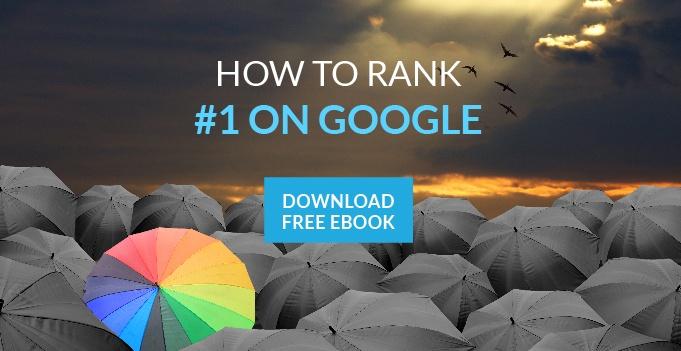 “How long will it take?” This is one question that is frequently asked by anyone who has recently decided that they want their business to rank high on a particular Google search engine results page (SERP). Unfortunately, there is no specific answer to that question. A lot of factors go into how easily your business will show up for a specific search term, many of which are difficult to influence. So while no one can say definitively exactly how long it will take, we can tell you the best way to go about making it happen.
“How long will it take?” This is one question that is frequently asked by anyone who has recently decided that they want their business to rank high on a particular Google search engine results page (SERP). Unfortunately, there is no specific answer to that question. A lot of factors go into how easily your business will show up for a specific search term, many of which are difficult to influence. So while no one can say definitively exactly how long it will take, we can tell you the best way to go about making it happen.
The first thing you’ll want to do is make sure you are targeting the right keywords. Super competitive keywords can be nearly impossible to rank highly for. For example, if you own a clothing boutique in Charleston, then targeting the term “clothing boutique Charleston” might seem like a sure thing. However, every single clothing boutique in the area will be targeting that same exact keyword. The chances of you showing up at number one, or even on the first page, aren’t that great until you’ve put in a lot of time and effort.
However, if you do your research to determine who your target buyer is and what they will be searching for, it’s much easier to find related keywords that you can rank for much more easily. Determining your target buyer persona(s) is essential when it comes to developing your web strategy. Your target buyer persona will tell you exactly who you are speaking to, what they are searching for, and the best way to reach them.
Using the clothing boutique example, let’s assume that you sell women’s clothing. Your target buyer may be a 40-something married woman with three children that range from middle to high-school ages. She’s looking for attractive clothing on a budget, and doesn’t have hours to search around for the latest trends. By deciding that this is who you are speaking to, you can develop your keyword strategy based on this woman’s wants and needs.
She may go online to search for “affordable women’s clothing in Charleston”, “trendy women’s clothing boutique in Charleston”, or even something along the lines of “what clothing should I buy this summer?”. The possibilities of the online searches she could conduct are basically endless. The great thing about this is that it gives you an incredible resource for developing blog content, and these more specific keywords are much easier to rank highly for.
If you decide that you would like to target the phrase “trendy women’s clothing boutique in Charleston”, your first step is to write a blog article based on that topic. You should intersperse that keyword phrase throughout the article wherever it makes sense. The more Google sees that you have used this phrase, the more “authority” they will believe you have on the topic. Use the phrase in your title, in the body of your blog post, and in your alt and Meta tags.
Don’t stop with just one blog article on the topic. Write several over a period of time. While you obviously want to switch up what you are posting about here and there, consider writing a regular feature that uses this keyword as the headline. This will help raise your blog to the top of the results for that particular keyword very quickly.
It’s also important to update your blog frequently, no matter what you are posting. Google seems to place high value on blogs and websites that update on a regular basis, so determine a posting schedule that’s realistic for you and stick with it. Five days a week would obviously be optimal, but if two or three times per week is what is doable for you, then go for it.
Finally, take advantage of your social media sites. Push out an update for every blog post that you publish. Use your keywords in your update, and link directly to your blog post. You should have a presence on several different sites, whether it be Facebook, LinkedIn, Google+, Twitter, or all four. Use these sites to your advantage. Encourage followers to check out your blog posts and drive interaction as much as possible. Social media can be a huge help in growing your web presence and driving your blog up in the search engine results.
If you take the time to do these few things, you’ll soon see your blog posts showing up high on the page in the Google search engine results. Remember that your target buyer may search for a variety of terms, and they may not all directly relate to your business specifically. By thinking outside of the box you may be able to grab the attention of potential buyers who may never have found you by searching for the most obvious search terms. To read more on this topic, download our free eBook "How to Rank #1 on Google".


Comments